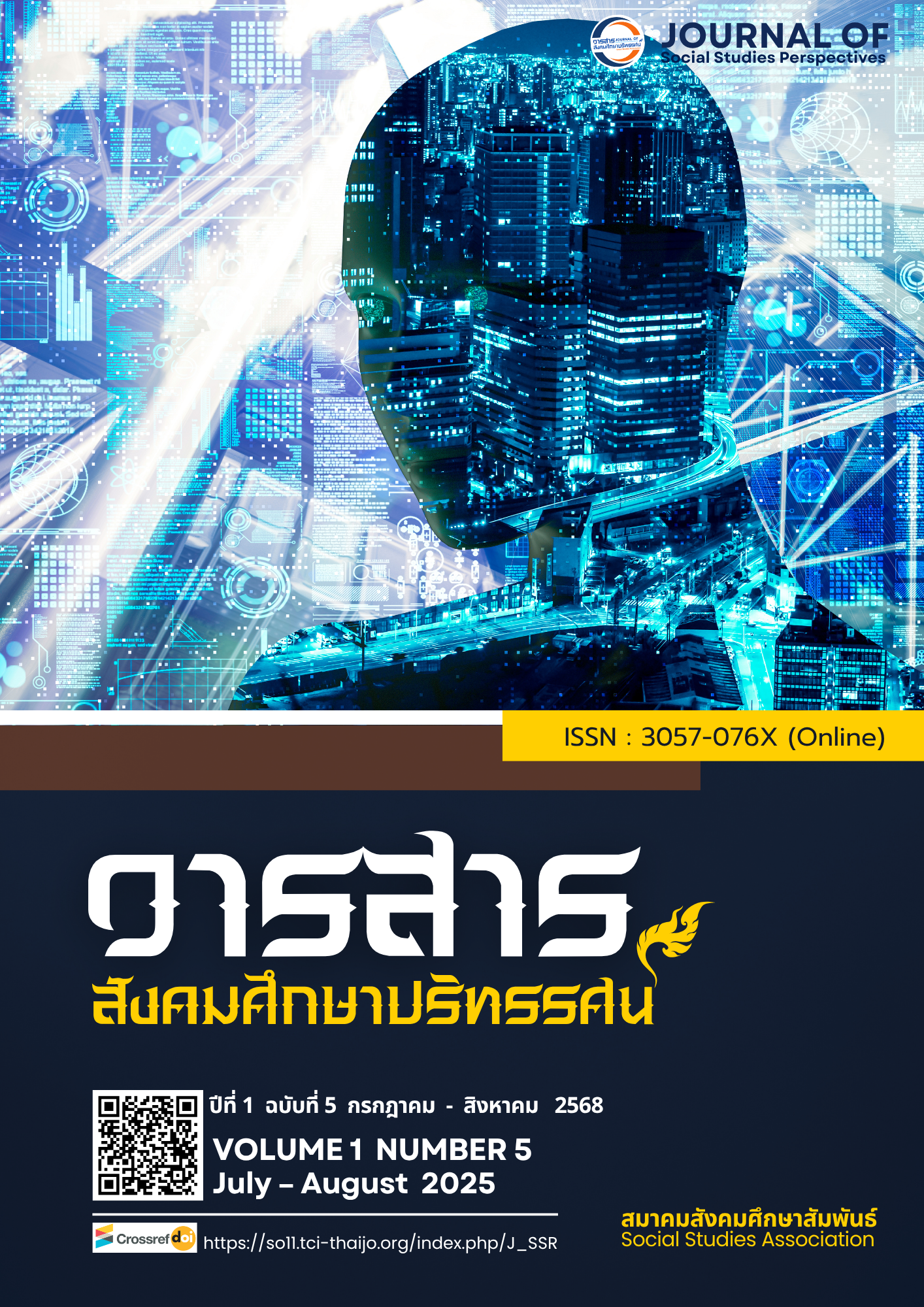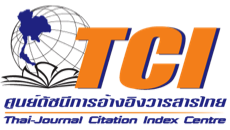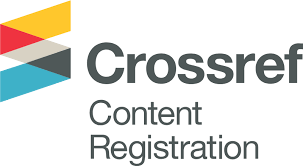ACADEMIC ADMINISTRATION BASED ON THE CONCEPT OF DIGITAL CITIZENSHIP
DOI:
https://doi.org/10.64186/jsp1773Keywords:
Administration, Academic Administration , Digital CitizenshipAbstract
This academic article aims to: 1) examine the current state of academic administration based on the concept of digital citizenship; 2) analyze the components of academic administration according to the digital citizenship concept; and 3) propose guidelines for developing academic administration based on the concept of digital citizenship.In the digital age, where technology plays a crucial role in the development of education, academic administration must adapt its approach to align with technology-driven learning. The concept of digital citizenship has thus gained widespread attention as it serves as a pathway for developing learners' abilities to use digital technology safely, ethically, and effectively.In this article, the author presents the concept, significance, scope, and components of academic administration according to the concept of digital citizenship. The knowledge provided in this article will benefit school administrators and educational organizations, enabling them to apply these concepts in school management to align with the changes of the digital world.
References
Changkwanyuen, A. (2022). Development of learning models to promote digital citizenship
of undergraduate students based on the active learning concept with social media [Doctoral dissertation, Naresuan University].
Charoenwanichkul, P. (2021). The suitability of students’ reflective and formative digital
citizenship measurement models: Bayesian statistical analysis [Doctoral dissertation, Chulalongkorn University].
Chomchuen, N. (2020). Academic administration strategies of secondary schools based on
the concept of global citizenship [Doctoral thesis, Chulalongkorn University].
Chuenbunchu, N. (2023). Guidelines for the development of academic administration in
colleges of agriculture and technology based on the concept of smart agricultural
entrepreneurship skills [Master's thesis, Chulalongkorn University].
Electronic Transactions Development Agency. (2025, January 8). Report on the survey of internet user behavior in Thailand 2022. Retrieved from https://www.etda.or.th/th/Our-Service/statistics-and-information.aspx
Huamark Metropolitan Police Station. (2025, January 8). 4 forms of crime that come with AI: Trends in online crime in 2024. Retrieved from https://huamark.metro.police.go.th/2023/12/online-crime/#
Institute for the Promotion of Teaching Science and Technology. (2025, January 8). PISA 2022 assessment results: Executive summary. Retrieved from https://pisathailand.ipst.ac.th/pisa2022-summary-result/
Intrawet, P. (2017). Academic administration guidelines in kindergarten schools based on STEM education concept: A case study of Nonthaburi Province [Doctoral dissertation, Chulalongkorn University].
Kaewkerd, M. (2019). Strategies for academic administration in secondary schools based on digital citizenship concept [Doctoral dissertation, Chulalongkorn University].
Kenneth, T. (2010). The influence of school architecture on academic achievement. Journal of Educational Administration, 38(4), 309-330.
Konglap, L., Setthitip, A., Inthanon, S., & Sermsinsiri, P. (2018). Preparation of digital intelligence (DQ) factsheet and study of cyberbullying among adolescents. Children and Youth Media Institute. Retrieved from https://cclickthailand.com/wp-content/uploads/2020/04/16.pdf
Kraiwin, P. (2017). Strategies for the development of private school administrators based on the concept of digital citizenship [Doctoral thesis, Chulalongkorn University].
Mookha-sarn, P. (2020). Approaches for developing academic administration of secondary schools in Bangkok based on the concept of green citizen competency learning outcomes [Master's thesis, Chulalongkorn University].
National Institute of Educational Testing Service. (2025, January 10). Report on the analysis of the results of the national basic education test (O-NET) to develop teaching and learning for grade 6, academic year 2023. Retrieved from https://www.niets.or.th/th/catalog/view/497
Phothien, S. (2019). Strengthening digital citizenship of elementary school students in the northeastern region [Doctoral thesis, Chulalongkorn University].
Pongkan, R. (2023). Strengthening digital citizenship of elementary school students in the northeastern region [Doctoral dissertation, Maha Sarakham University].
Sripo, A. (2018). Strategy of academic administration in private secondary schools based on the concept of creative thinking skills and innovative thinking skills [Doctoral thesis, Chulalongkorn University].
Tahom, N. (2021). The relationship between teamwork and academic administration of schools under the Office of the Primary Educational Service Area 2, Prachinburi [Master's thesis, Rajamangala University of Technology Thanyaburi].
Tanantong, T. (2023). Development of community-based history learning innovation to strengthen digital citizenship of high school students [Master's thesis, Chiang Mai University].
Wongkitrungruang, W. (2018). Digital citizen manual (1st edition). Digital Economy Promotion Agency, Ministry of Digital Economy and Society. Retrieved from https://thaidigizen.com/wp-content/uploads/2018/06/DigitalCitizenship-Book-ok.pdf
Yodying, C., Phoorungrueng, S., & Thee-asana, S. (2023). Academic administration strategies based on the digital citizenship concept of educational institutions under the Office of the Primary Educational Service Area in Nakhon Ratchasima Province. Journal of Education Studies, 51(1), 6-11.
Downloads
Published
How to Cite
Issue
Section
Categories
License
Copyright (c) 2025 Journal of social studies perspectives

This work is licensed under a Creative Commons Attribution-NonCommercial-NoDerivatives 4.0 International License.
The article is published under the Creative Commons Attribution-NonCommercial-NoDerivatives 4.0 International (CC BY-NC-ND 4.0) license, which allows others to share the article while giving appropriate credit to the author. It prohibits the use of the article for commercial purposes or the creation of derivative works. Any other reuse or reproduction requires permission from the journal.










